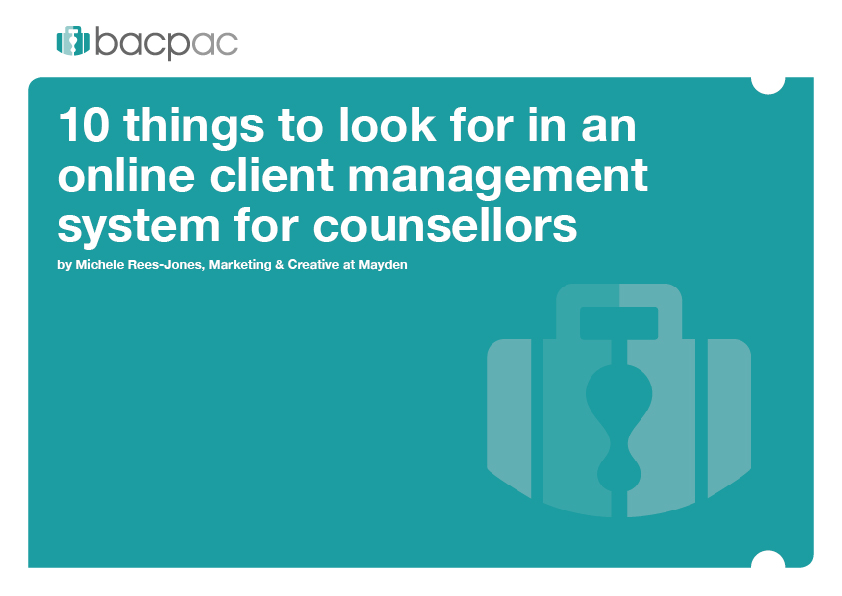For some counsellors, keeping notes from treatment sessions with their therapy clients can be a doddle. For others it’s a constant administrative challenge of managing paper records and updating various databases and other documents, and manually assessing clients’ progress. Not to mention dealing with the ever present risk of losing a highly confidential client file.
When choosing a system make sure you vet it carefully for its security credentials. Some systems are as secure as any used by the NHS and adhere rigorously to the same standards of data safety. If you’re currently using a spreadsheets package, don’t simply swap one insecure system for another.
Online client management systems can be a great way of reducing the administrative burden, helping counsellors and therapists to manage their caseloads more efficiently and keep records as safely as any NHS system.
When choosing an online client management system for counsellors, it really comes down to how you want to manage your client records and what you want a system to do for you. Read our e-book below to help you to understand what to look for in a client management system.
10 things to look for in an online client management system:
1. Recording client session notes safely and simply
2. Record client contact information
3. Ease of booking appointments
4. Self referral
5. Managing your caseload
6. Outcome measures and reporting
7. Generate correspondence
8. Tracking and managing your practice finances
9. Portability
10. Pricing

